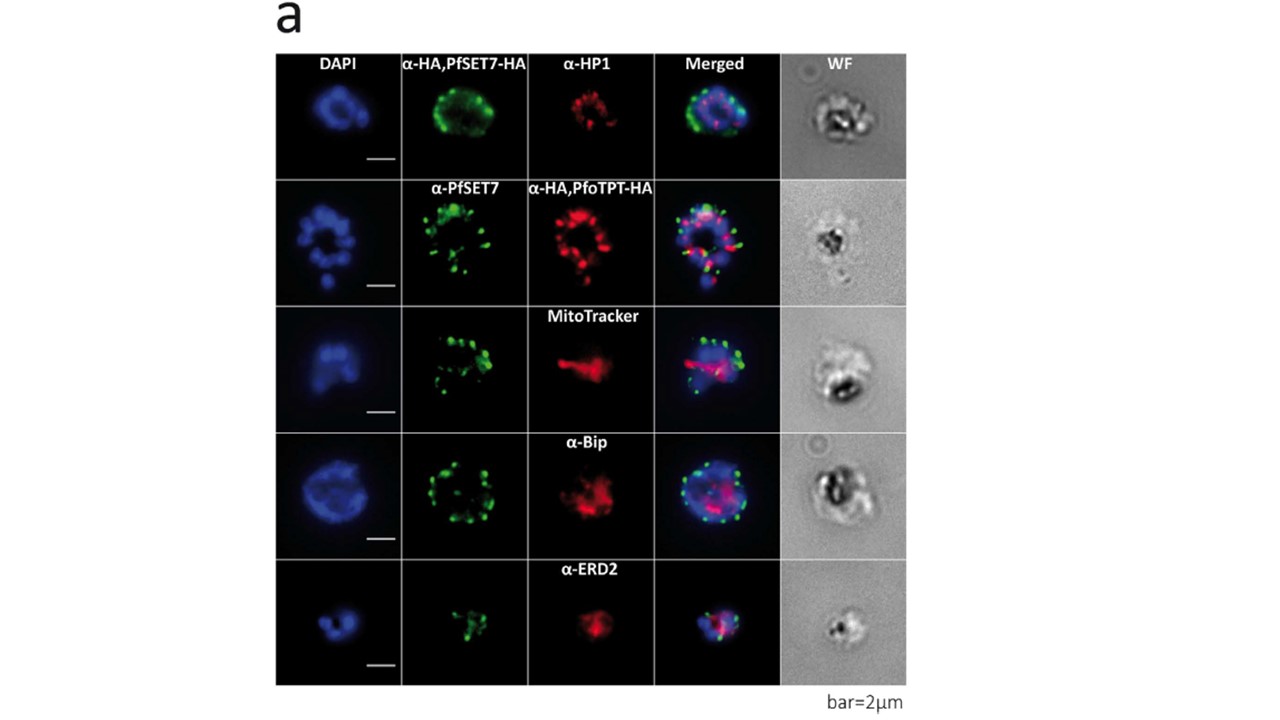Immunofluorescence localization of PfSET7 at different stages of the Plasmodium falciparum life cycle. (a) Asexual blood stage parasites. Markers used were: DAPI as a DNA marker, anti-HA in PfSET7-HA parasites, anti-PfSET7 in wild-type parasites, anti-HP1 as a nuclear periphery marker, anti-HA in PfoTPT-HA parasites as an apicoplast marker, MitoTracker Deep Red FM staining for the mitochondrion, anti-Bip as an ER marker and anti-ERD2 as a cis-golgi marker. The scale bars correspond to 2 μm. The data show PfSET7 does not co-localize with mitochondrial staining and is therefore not located within this organelle. To determine if PfSET7 is in the apicoplast we used a parasite line expressing HA-tagged triosephosphate transporter (PfoTPT-HA), a polytopic membrane protein of the apicoplast. The IF images show no signal overlap between PfSET7 and PfoTPT, indicating PfSET7 is not located in the parasite apicoplast. utilizing markers for endoplasmic reticulum or the cis-golgi these reveal that PfSET7 does not co-localize with either. These combined IF results suggest PfSET7 is localized to a distinct compartment in the cytoplasm.
Chen PB, Ding S, Zanghì G, Soulard V, DiMaggio PA, Fuchter MJ, Mecheri S, Mazier D, Scherf A, Malmquist NA. Plasmodium falciparum PfSET7: enzymatic characterization and cellular localization of a novel protein methyltransferase in sporozoite, liver and erythrocytic stage parasites. Sci Rep. 2016 6:21802.
Other associated proteins
| PFID | Formal Annotation |
|---|---|
| PF3D7_0508300 | triose phosphate transporter, TPT |
| PF3D7_0917900 | PfHsp70-2 |
| PF3D7_1353600 | ER lumen protein retaining receptor |
